Digital Poster
Innovations in TBI Imaging & Biomarkers
ISMRM & ISMRT Annual Meeting & Exhibition • 10-15 May 2025 • Honolulu, Hawai'i

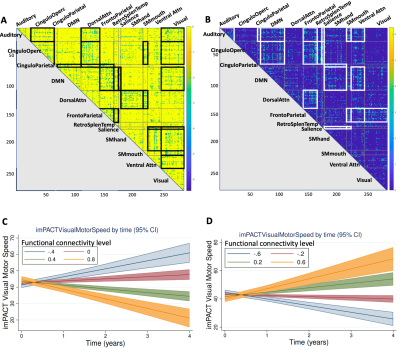 |
Computer Number: 113
2070. Longitudinal
changes of resting state functional connectivity in high-contact
sports
M. Karimpoor, Y. Wang, H. Moein Taghavi, M. Georgiadis, R.
Ciric, S. Sami, B. Mills, J. Towns, N. Cecchi, V. Ortega, C.
Liu, J. Van Horn, M. Wintermark, M. Goubran, G. Grant, D.
Camarillo, M. Zeineh
Stanford, Stanford, United States
Impact: This research sheds light on how repetitive head
impacts in contact sports affect brain connectivity over
time and cognitive performance.
|
|
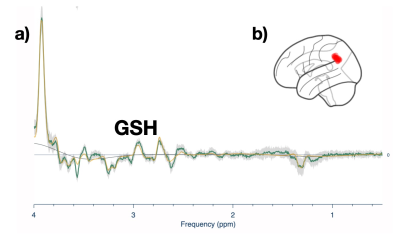 |
Computer Number: 114
2071. Addressing
the Understudied via MRS: Repetitive Neurotrauma in Women
Survivors of Intimate Partner Violence
A. Gonenc, S. Nikolaidou, E-M Ratai, E. Valera
Massachusetts General Hospital, Boston, United States
Impact: This research showcases the unique application
of advanced MRS techniques in an understudied population,
underscoring the critical need for gender-specific studies
in repetitive neurotrauma.
|
|
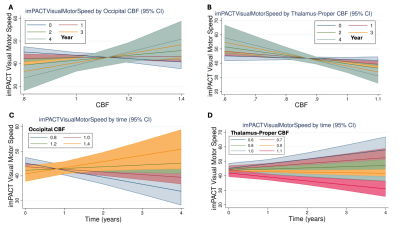 |
Computer Number: 115
2072. Longitudinal
Cognitive Performance and Cerebral Perfusion in High and
Low-Contact Sport Athletes
M. Karimpoor, H. Moein Taghavi, Y. Wang, M. Georgiadis, S.
Sami, J. Towns, N. Cecchi, B. Mills, M. Goubran, M.
Wintermark, G. Zaharchuk, M. Zhao, G. Grant, D. Camarillo,
M. Zeineh
Stanford University, Stanford, United States
Impact: This research provides critical insights into
how cerebral blood flow patterns are associated with
cognitive performance and symptom progression in
high-contact athletes.
|
|
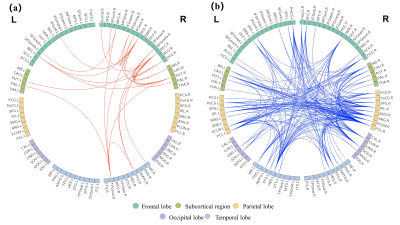 |
Computer Number: 116
2073. Myelin-related
gray matter abnormalities in pediatric mild traumatic brain
injury characterized by T1w/T2w imaging
Z. Wang, H. Zhang, X. Li, J. Ding, Y. Pan, X. Zhang, T. Wu,
L. Shi, Z. Li, L. Bai
The First Affiliated Hospital of Xi'an Jiaotong University, Xi'an, China
Impact: Our study reveals the extensive demyelination
and network disruptions in pediatric mTBI patients.
Identifying vulnerable regions of myelin development may
inform targeted therapeutic interventions and improve
long-term outcomes in pediatric mTBI, addressing a critical
gap in neurodevelopmental injury research.
|
|
|
Computer Number:
2074. WITHDRAWN |
||
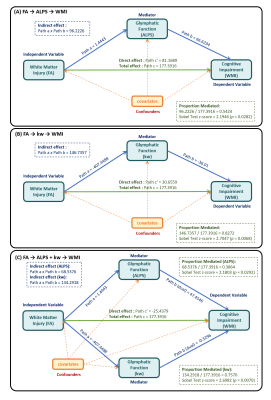 |
Computer Number: 117
2075. Exploring
Post-Concussive Glymphatic Dysfunction: Independent Mediation
Roles of ALPS and kw Mapping on Working Memory Impairment
Y-T Li, C-Y Chen
Taipei Medical University, Taipei, Taiwan
Impact: This research highlights kw mapping as a crucial
metric for assessing post-concussive glymphatic dysfunction,
potentially aiding clinicians in predicting cognitive
outcomes. The study suggests new directions for
investigating neuroimaging biomarkers that link brain
microstructure with cognitive function in TBI contexts.
|
|
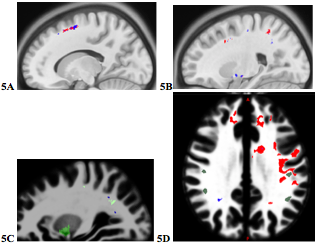 |
Computer Number: 118
2076. Higher
orders diffusion MRI metrics along with enlarged perivascular
spaces as markers in chronic mild traumatic brain injury
P-H Yeh, C. Song, R. Srikanchana, C. G. Koay, W. Liu, G.
Bonavia, G. Riedy, J. Ollinger
National Intrepid Center of Excellence, Walter Reed National Military Medical Center, Bethesda, United States
Impact: Higher model diffusion MRI along with ePVS loads
assessment should be considered as a choice of option in
evaluating subtle white matter alterations in mild traumatic
brain injury due to heterogeneous injury and repair
mechanisms after a remote brain injury.
|
|
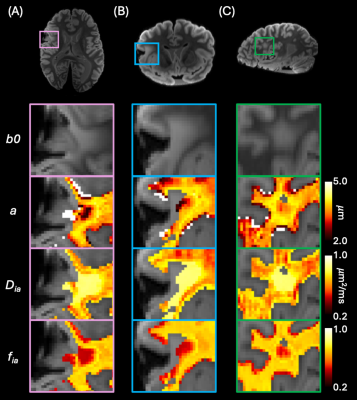 |
Computer Number: 119
2077. Evidence
for axonal beading and loss in traumatic brain injury using
ultra-high gradient ex vivo diffusion MRI
D. Sung, H-H Lee, K-S Chan, G. Ramos-Llorden, A. Müller, B.
Keil, C. D. Keene, A. Nolan, B. Edlow, C. Mac Donald, K.
Dams-O’Connor, B. Fischl, A. van der Kouwe, S. Huang
Massachusetts General Hospital and Harvard Medical School, Charlestown, United States
Impact:
This study leverages the high-performance gradients of the Connectome 2.0 scanner and a state-of-the-art RF coil for ex vivo imaging to create a platform for histopathologic-imaging correlation and elucidate the mechanisms of post-traumatic neurodegeneration. |
|
|
Computer Number:
2078. WITHDRAWN |
||
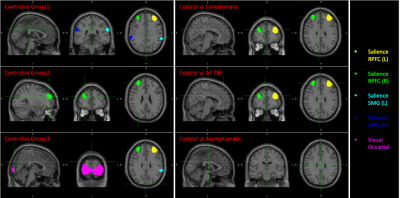 |
Computer Number: 120
2079. Symptom-specific
Functional Brain Entropy in Mild Traumatic Brain Injury: a
Resting State MRI Study
X. Chen, A. Alivar, J. Rath, S. Flanagan, Y. Lui, S. Chung
Vilcek Institute of Biomedical Sciences, New York University Grossman School of Medicine, New York, United States
Impact: This study highlights changes in brain temporal
entropy as a promising biomarker for detecting
symptom-specific neural changes in mTBI, paving the way for
more precise diagnosis and tailored treatment approaches.
|
|
 |
Computer Number: 121
2080. Soccer
Heading is Associated with Loss of Gray Matter-White Matter
Contrast in Females, but not Males
J. Song, R. Fleysher, K. Ye, M. Lipton
Albert Einstein College of Medicine, Bronx, United States
Impact: Our results place focus on women as uniquely
affected by adverse brain effects of heading, identify
heading-associated pathology at an underappreciated brain
location and can be readily applied to analysis of existing
clinical images and datasets.
|
|
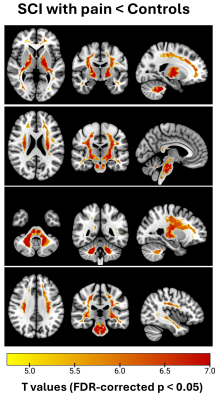 |
Computer Number: 122
2081. Is
reduced brain tissue conductivity a signature of pain?
C. Rae, R. Robertson, J. Cao
UNSW, Randwick, Australia
Impact: The decreased conductivity, particularly in the
corticospinal tracts could be related to decreased physical
activity or be a quantitative signature of chronic back pain
as it is not seen in SCI patients without pain.
|
|
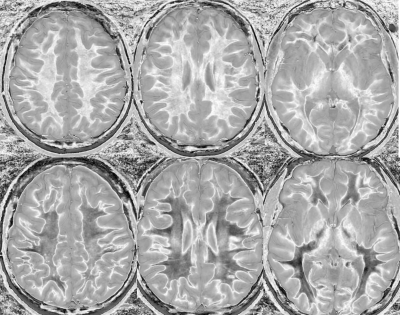 |
Computer Number: 123
2082. Ultra
High Contrast MRI for Detecting Symptomatic Mild Traumatic Brain
Injury.
D. Cornfeld, P. Condron, G. Newburn, T. Emsden, E. Kwon, J.
McGeown, G. Bydder
Matai Medical Research Institute, Gisborne, New Zealand
Impact: UCH MRI may be useful for identifying patients
symptomatic from mTBI. This has potential implications for
determining return to play in athletes and managing
treatment in chronic sufferers. Validation of disease is
also important for patient well-being and insurance
reimbursement.
|
|
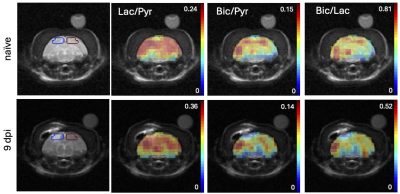 |
Computer Number: 124
2083. Metabolic
Imaging of Hyperpolarized [1-13C]Pyruvate in a Ferret Model of
Traumatic Brain Injury
D. Mayer, A. Eldirdiri, A. Hrdlick, B. Piskoun, J. Rogers,
A. Jhajharia, M. Zhu, J. Proctor, U. Leiste, W. Fourney, J.
Cantu, G. Fiskum, M. Goodfellow
University of Maryland School of Medicine, Baltimore, United States
Impact: Metabolic imaging of HP [1-13C]pyruvate
for the noninvasive investigation of perturbations in brain
energy metabolism in a highly translatable animal model of
TBI may contribute to both improved understanding of injury
mechanisms and more effective drug development.
|
|
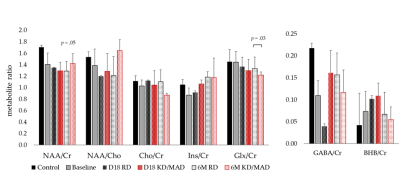 |
Computer Number: 125
2084. Long-Term
Benefits of Ketogenic/Modified Atkins Diet Following
Moderate-Severe Traumatic Brain Injury.
B. Bartnik Olson, R. Jalal, M. Recio, M. Carson, K. Wells,
K. Salvador, D. Tran
Loma Linda University Medical Center, Loma Linda, United States
Impact: This study provides a first look at the effect
of short-term KD/MAD on brain structure and metabolism
following moderate-severe TBI, showing that its effects
outlast the duration of the diet.
|
|
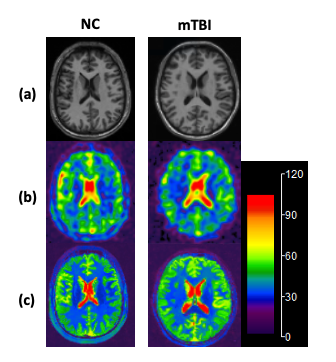 |
Computer Number: 126
2085. Investigating
total sodium concentration in brain regions after concussion
using anatomically-guided reconstruction
A. Alivar, G. Schramm, Y. Qian, M. Bruno, F. Boada, Y. Lui
New York University Grossman School of Medicine, New York, United States
Impact: We demonstrate feasibility of measuring and
mapping regional brain sodium in a small cohort of mTBI
subjects, providing a method by which to measure regional
brain sodium and study potential ionic dysfunction after
injury.
|
The International Society for Magnetic Resonance in Medicine is accredited by the Accreditation Council for Continuing Medical Education to provide continuing medical education for physicians.